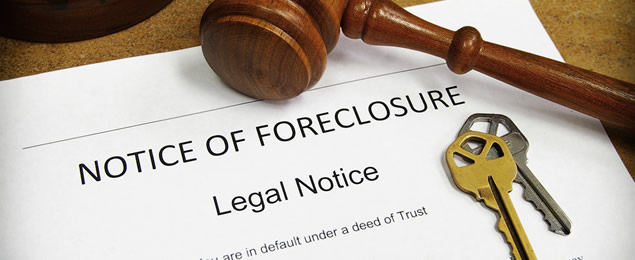2 BD / 1 BH
GA 30310

Find foreclosed homes for sale up to 60% below market value on our foreclosure listings

A pre-foreclosure home is a property that is facing foreclosure but has not yet been repossessed by the lender. In other words, the owner is still in the home and may want to sell the property as a way to avoid foreclosure. Since the housing crisis, pre-foreclosure homes are widespread. As an investor or potential homeowner, buying a pre-foreclosure could give you a new property at a significant discount.
A pre-foreclosure property, as mentioned above, is a property that is facing foreclosure due to late mortgage payments. Most often, the owners of these properties have had a public Notice of Default filed against them by the lender for being delinquent on their mortgage payments. This is widely viewed as the first significant stage of the foreclosure process.
A property enters into pre-foreclosure after the Notice of Default is filed. Most states require 90 days from the filing of the Notice of Default before the home can be repossessed and sold at a public auction. This can be impacted by whether or not the state is a judicial or non-judicial foreclosure state.
In a judicial foreclosure state, the courts must decide whether or not the homeowner can lose his or her home. This comes after the lender files a Lis Pendens claim against the homeowner. In a non-judicial foreclosure state, the lender does not have to operate through the courts and can claim what is known as a 'strict foreclosure', or repossessing the property for the debt owed.
The timeline of a pre-foreclosure differs from state to state. After the initial Notice of Default in most states, homeowners have 90-120 days to work out an agreement before the home is sold at a foreclosure auction. In a judicial foreclosure state, the foreclosure process differs greatly based on the state's laws, and the timeline can vary. While the case is in court, though, the homeowner can negotiate with potential buyers and arrange a pre-foreclosure sale as a way to avoid foreclosure.
In a state that allows deeds of trust, a trustee with power of sale can initiate a trustee's sale and repossess the property as quickly as two weeks in some states.
At the end of the legal time frame (dependant on state law), the home can become repossessed by the lender and the owners evicted. As a result, homebuyers have a limited window of time to claim a pre-foreclosure.
A homebuyer can effectively claim a pre-foreclosure by following key steps and understanding the pre-foreclosure process.
Finding a real estate agent who has experience with finding pre-foreclosures and closing deals is highly recommended. Agents offer invaluable resources and experience in a field that is not very highly understood by most in the industry.
Understand that banks often do not negotiate with the buyer. As a result, you should only attempt to find pre-foreclosure lists from the lender and go through the homeowner for the negotiation process. More help with finding pre-foreclosure homes is provided below.
Once you have a list, you can find a property that interests you and learn more about the premises. This is the time to inspect the property from the street and research the paperwork behind the property. Look for any public info on mechanic's liens, foreclosure liens, second mortgages, or any other filings that suggest problems with the home's title. A title company is a necessity here.
Research gives you an approximate idea of the home's worth. The next step is to contact the owner. Doing so indirectly – perhaps through a written letter or a postcard – is preferable than calling or going to their front door. Discuss options, like how a short sale can help them possibly avoid bankruptcy. In many cases, a homeowner has the option to request a deed in lieu of foreclosure, so talking with the owner early in the process is recommended.
The final step is to submit an offer. After reaching an agreement with the owner, tender a written offer through your agent to the bank. A short-sale transaction – in which the home is worth less than what is owed – must have approval from the owner and the lender.
Finding pre-foreclosure homes is possible through a variety of avenues and channels in the local market. Lenders have foreclosure lists and short sale possibilities available through loss control officers. Real estate agents also have options available to you. Finally, online directories like BankForeclosuresSale.com contain lists of properties in all foreclosure states – from pre-foreclosures to foreclosures and REO homes – in all 50 states.
